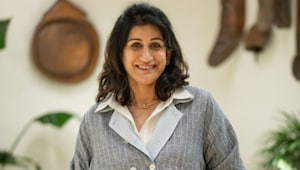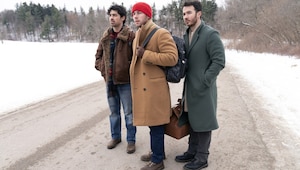10 Things Moms Who Adopted Their Kids Want You to Know
Our kids are "our own."

1. Every adoption story is different. There are many reasons that people choose to expand their families via adoption, and similarly, there are many reasons that children are placed for adoption. Some adoptions are domestic, and some are international. Some are infants, some are older children. What you know of your cousin's adoption of her second child might be completely different from my adoption of my oldest child or my friend's adoption of her youngest. If you make assumptions about one person's adoption based on what you know of someone else's, your assumptions may be wrong, and this can lead to some really uncomfortable conversations.
[instagram ]https://www.instagram.com/p/BHUG5WbBYy_/" data-instgrm-version="14" style="background:#FFF; border:0; border-radius:3px; box-shadow:0 0 1px 0 rgba(0,0,0,0.5),0 1px 10px 0 rgba(0,0,0,0.15); margin: 1px; max-width:540px; min-width:326px; padding:0; width:99.375%; width:-webkit-calc(100% - 2px); width:calc(100% - 2px);" >
2. Our fertility is not your business. While some people may choose adoption as a result of fertility struggles, others choose adoption for other reasons. Some people feel ready to add another child to their home and would like to be a family to someone who needs one. Regardless of the reason, questions or assumptions about fertility can be disrespectful or even hurtful, particularly if someone struggled with infertility for a long time. I have had several people who are acquaintances ask me questions along the lines of, "How long did you try to get pregnant before deciding to adopt?" Not only was this question based on untrue assumptions, it felt entirely too personal to be coming from, say, a mom I'd seen twice at the park. If you are not close enough to the person to discuss fertility as a separate topic, it's not appropriate to bring it up in the context of her adoption.
[instagram ]https://www.instagram.com/p/BAQDpamRMl3/" data-instgrm-version="14" style="background:#FFF; border:0; border-radius:3px; box-shadow:0 0 1px 0 rgba(0,0,0,0.5),0 1px 10px 0 rgba(0,0,0,0.15); margin: 1px; max-width:540px; min-width:326px; padding:0; width:99.375%; width:-webkit-calc(100% - 2px); width:calc(100% - 2px);" >
3. Our kids are "our own." If I had a dollar for every time someone asked me if I wanted to have any of "my own" children (sometimes in front of my current own children!), I would own a vacation home in the South of France by now. When we commit to our children in adoption, they become part of our family and are thus "our own." They belong in our families and have all the same rights as a child who joins a family by birth. We love them just as much as if they had been born from our bodies. Instead of saying something that implies that our children are not "our own," simply ask if we want children via pregnancy more directly. But bear in mind that this can fall under #2, and it might not be something someone wants to answer if they do not know you well.
4. Our kids are not "lucky" to be adopted. Our kids might be lucky for lots of other reasons, but growing up as part of a family that cares for you well is simply a basic human right. If an adoptee decides that they feel lucky to be in the family they are in, then that's their call. But it shouldn't be assumed or expected.
[instagram ]https://www.instagram.com/p/BHE1MAiBPgE/" data-instgrm-version="14" style="background:#FFF; border:0; border-radius:3px; box-shadow:0 0 1px 0 rgba(0,0,0,0.5),0 1px 10px 0 rgba(0,0,0,0.15); margin: 1px; max-width:540px; min-width:326px; padding:0; width:99.375%; width:-webkit-calc(100% - 2px); width:calc(100% - 2px);" >
5. Our kids' stories belong to them, not to us. Our children are people who will grow into adults, and they own their stories. Many children who are placed for adoption have complicated pasts or feel pain due to the loss they experienced when they were separated from their first families. Our children have a right to choose whether to keep details of their lives private or to share them. If a child wants to share her story with you, she will. My children have, at different times in their lives, wanted to share parts of their stories with others, and as they grow, I find that what they are comfortable sharing changes. It's best to simply treat it as something that is none of your concern unless the information is volunteered by the child. I want it to always be my children's choice to share or not to share what is very personal information.
[instagram ]https://www.instagram.com/p/BFuFIv4xMu8/" data-instgrm-version="14" style="background:#FFF; border:0; border-radius:3px; box-shadow:0 0 1px 0 rgba(0,0,0,0.5),0 1px 10px 0 rgba(0,0,0,0.15); margin: 1px; max-width:540px; min-width:326px; padding:0; width:99.375%; width:-webkit-calc(100% - 2px); width:calc(100% - 2px);" >
6. Our kids' first families and cultures are important. When we adopt our children, it doesn't mean that everything that came before us disappears and becomes insignificant. Their first families and the culture they come from are a part of who they are and who they will become. Our children know that they have more than one family. They take pride in their heritage, and it is a key part of their identity. We don't ever want them to feel that becoming part of our family means that they have to choose us and our culture over their first family and their birth culture. It is not an either/or situation.
[instagram ]https://www.instagram.com/p/BGfRVt5xMlp/" data-instgrm-version="14" style="background:#FFF; border:0; border-radius:3px; box-shadow:0 0 1px 0 rgba(0,0,0,0.5),0 1px 10px 0 rgba(0,0,0,0.15); margin: 1px; max-width:540px; min-width:326px; padding:0; width:99.375%; width:-webkit-calc(100% - 2px); width:calc(100% - 2px);" >
7. We may parent differently than your family in order to accommodate our family's needs. Each child comes to his family with a unique history, and there are sometimes issues that arise which require a different approach to what may seem to be a common parenting problem. There's now a wealth of research about issues that are common in adoptive families, and there are parenting strategies and practices that take this research into account, such as the Trust-Based Relational Intervention (TBRI) model. To families who are using conventional methods, our parenting can look a little weird. To give a very basic example, we don't use time outs as part of our discipline practices. We keep our kids close to us in order to foster good attachment and offer them help to regulate their emotions. In a culture that values independence, this is seen as unusual, and I have gotten the side eye a few times.
[instagram ]https://www.instagram.com/p/BF1HD3VxMga/" data-instgrm-version="14" style="background:#FFF; border:0; border-radius:3px; box-shadow:0 0 1px 0 rgba(0,0,0,0.5),0 1px 10px 0 rgba(0,0,0,0.15); margin: 1px; max-width:540px; min-width:326px; padding:0; width:99.375%; width:-webkit-calc(100% - 2px); width:calc(100% - 2px);" >
8. It can be hard to be left out of discussions about parenthood that include only things we haven't experienced. Most adoptive moms love a good birth story even if we don't have one of our own, and we're happy to support you in whatever struggles you are having related to the physical aspects of pregnancy, birth, or breastfeeding. But to sit in a group of mothers and have nothing to add to the conversation can be awkward. No adoptive mom I know expects the conversation to revolve around her, but we like to be included in some way. Especially for my adoptive mom friends who very much wanted to experience pregnancy and couldn't, bringing the subject around to something all mothers can relate to is very much appreciated.
[instagram ]https://www.instagram.com/p/BHMTjOjhRs1/" data-instgrm-version="14" style="background:#FFF; border:0; border-radius:3px; box-shadow:0 0 1px 0 rgba(0,0,0,0.5),0 1px 10px 0 rgba(0,0,0,0.15); margin: 1px; max-width:540px; min-width:326px; padding:0; width:99.375%; width:-webkit-calc(100% - 2px); width:calc(100% - 2px);" >
9. We have lots in common with non-adoptive parents. Our kids drive us crazy sometimes, and we never get enough sleep, and if we're parenting alongside a partner, our partner probably drives us nuts from time to time. We are proud when our kids accomplish something new, and we worry about little challenges that they are facing. There is so much that we have in common as parents; we can easily bond over those things.
[instagram ]https://www.instagram.com/p/BDsc2LHRMqp/" data-instgrm-version="14" style="background:#FFF; border:0; border-radius:3px; box-shadow:0 0 1px 0 rgba(0,0,0,0.5),0 1px 10px 0 rgba(0,0,0,0.15); margin: 1px; max-width:540px; min-width:326px; padding:0; width:99.375%; width:-webkit-calc(100% - 2px); width:calc(100% - 2px);" >
10. We are moms. Period. At the end of the day, it's us who have tucked our kids into bed, who have wiped their noses, who have kissed their owies, who have snuck one last glance at our sleeping babes before we head to bed ourselves. We are moms, doing the work that moms do, loving the way that moms love.
more from Life

How training for a marathon became the most honest conversation I have ever had with myself

Emily in Paris season 5 is back—and we’re still hate-watching every minute of it

“Pebbling” is the non-toxic, genuinely adorable dating trend we all needed

Is 'future faking' the new gaslighting? Decoding this new dating trend

Bad at gifting? Check out these stocking stuffer ideas based on each zodiac sign

15 new Christmas movies you might want to add to your 2025 holiday watch list

Why glycolic acid is your skin's best friend for the winter season

Women have long been having sex on the first date—so why do some of us still feel shamed?

The 'shixie' is a modern take on the 70s shag haircut: 10 style ideas and how to wear the trending look

Why blush balms are the low-effort glow stick for fuss-free radiance
